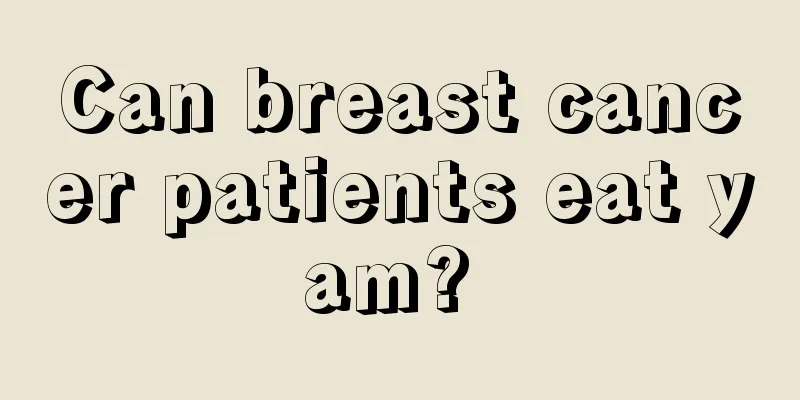My stomach hurts and I want to poop but I can't

|
The phenomenon of stomach pain and inability to defecate is most likely caused by gastritis, especially if this happens frequently. However, it is still difficult to determine whether it is caused by gastritis based on this symptom alone. We need to first have a comprehensive understanding of the condition of gastritis, and then make a comprehensive judgment based on other manifestations of the disease, so that we can draw a more accurate conclusion. Let’s take a look at the situation of gastritis. Clinical manifestations 1. Acute gastritis The onset is acute and the clinical symptoms vary in severity. The most common is acute simple gastritis, the main symptoms of which are upper abdominal pain, abdominal distension, belching, loss of appetite, nausea, vomiting, etc. Those caused by Salmonella or Staphylococcus aureus toxins are often accompanied by diarrhea, fever, and even dehydration and shock. Acute erosive hemorrhagic gastritis may cause vomiting of blood and black stools. The main clinical manifestations of acute suppurative gastritis are systemic sepsis and acute peritonitis. The symptoms of acute corrosive gastritis are the most obvious, manifested as severe pain in the mouth, throat, behind the sternum, and upper abdomen after swallowing corrosives, accompanied by nausea, vomiting, and even vomiting blood. The mucous membranes of the lips, mouth, and throat can produce caustic scabs of different colors, which help to identify various corrosive agents. 2. Chronic gastritis The clinical manifestations of different types of gastritis may vary, but the symptoms lack specificity, and the severity is often inconsistent with the severity of the lesion. Some patients may be asymptomatic. (1) Upper abdominal pain or discomfort Most gastritis patients experience upper abdominal pain or discomfort. Most upper abdominal pain is irregular and has nothing to do with diet. The pain is generally diffuse upper abdominal burning pain, dull pain, bloating, etc. (2) Upper abdominal distension and early satiety Some patients experience abdominal distension, especially a noticeable feeling of fullness after a meal. It is often caused by food retention in the stomach, delayed emptying, and indigestion. Early satiety refers to a feeling of fullness soon after eating despite having a clear sense of hunger, and a significant reduction in food intake. (3) Belching, acid reflux, and nausea Belching indicates an increase in gas in the stomach, which is discharged through the esophagus, temporarily relieving upper abdominal fullness. Acid reflux is caused by increased gastric acid secretion. (4) Other severe atrophic gastritis patients may have weight loss, glossitis, and diarrhea; autoimmune gastritis patients may have anemia. treat 1. Acute gastritis (1) General treatment: bed rest, elimination of the cause, light liquid diet or appropriate fasting. For those with obvious vomiting and diarrhea, replenish electrolytes and water in time. (2) Symptomatic treatment includes administration of gastric mucosal protectants and acid inhibitors; patients with bacterial infection should be given antibiotics. (3) Special treatment: Acute suppurative gastritis should be treated with large doses of sensitive antibiotics as soon as possible. When abscesses form in the local area of the lesion and drug treatment is ineffective, surgical treatment can be performed. Corrosive gastritis caused by swallowing strong acids or alkalis can be treated by taking milk, egg white or other liquid mucosal protective agents. In case of severe pain, analgesics such as morphine can be given. 2. Chronic gastritis (1) General treatment: Quit smoking and avoid drinking alcohol; avoid using drugs that damage the gastric mucosa, such as aspirin, indomethacin, erythromycin, etc.; eat regularly and avoid overheated, salty, and spicy foods; actively treat chronic oral, nasal, and pharyngeal infections. (2) Drug treatment 1) Commonly used drugs for protecting gastric mucosa include colloidal bismuth subcitrate (CBS), sucralfate, mezilin-S, aluminum hydroxide gel, and gastric mucosa. 2) Drugs that adjust gastrointestinal motility function can be used to treat upper abdominal distension, such as domperidone. For those who suffer from hiccups, bloating or reflux, gastrokinetic drugs can be used. 3) Antibiotics If gastroscopy shows Helicobacter pylori is positive, antibiotics should be taken. Clarithromycin, amoxicillin, etc., all have the effect of clearing Hp. Generally, two types can be selected, and they are often used in combination with gastric mucosal protectants and acid inhibitors. 4) Drugs that reduce gastric acid, such as alkaline antacids such as sodium bicarbonate and aluminum hydroxide; H2 receptor antagonists such as cimetidine and ranitidine; proton pump inhibitors such as omeprazole and lasoprazole, etc. 5) Painkillers: Patients with severe upper abdominal pain can take atropine, propantheline, belladonna tablets or 654-2 orally to reduce gastric acid secretion and relieve abdominal pain symptoms. 6) Other symptomatic treatment drugs include digestive aids, such as pancreatic enzymes, yeast tablets, lactase, dimethicone tablets, etc. To prevent bile reflux, you can take aluminum carbonate magnesium and cholestyramine to absorb bile; for those who have vomiting blood and bloody stools, take cimetidine orally. |
<<: Steps for grinding vitamin b6 and applying it on your face
>>: Vitamin E can replace eye cream
Recommend
Who is not suitable for drinking green tea
Speaking of green tea, I believe everyone knows t...
Is there a high risk in pituitary tumor surgery?
For some patients, surgical treatment is often th...
Bladder cancer cystoscopy
The occurrence of bladder cancer has a serious im...
Where is the fourth lumbar vertebra?
Everyone knows that Chinese medicine is very prof...
Introducing effective nursing methods for small cell lung cancer
Introduce the effective nursing methods for small...
3 dietary therapies to help gastric cancer patients digest food and strengthen the spleen
The stomach is an important organ for containing ...
What is the best treatment for gallstones
When it comes to gallstones, most people think th...
Are kale and cabbage the same?
Many vegetables in our daily life are very nutrit...
Causes of uterine cancer in women
Uterine cancer is a very common malignant tumor i...
What can’t be put in the microwave?
Now that people's material living standards h...
Spanking to treat mental illness
I believe that everyone was naughty when they wer...
What are the treatments for liver cancer? Eating two types of food frequently can easily induce liver cancer
Although liver cancer is not contagious, it can a...
This method of peeling pineapple is very simple
Pineapple is a very popular fruit. It is sweet an...
How long can an elderly person with pancreatic cancer live
The specific survival period of tumors cannot be ...
What's the matter with negative human mycoplasma
Mycoplasma viruses have a very high survivability...









